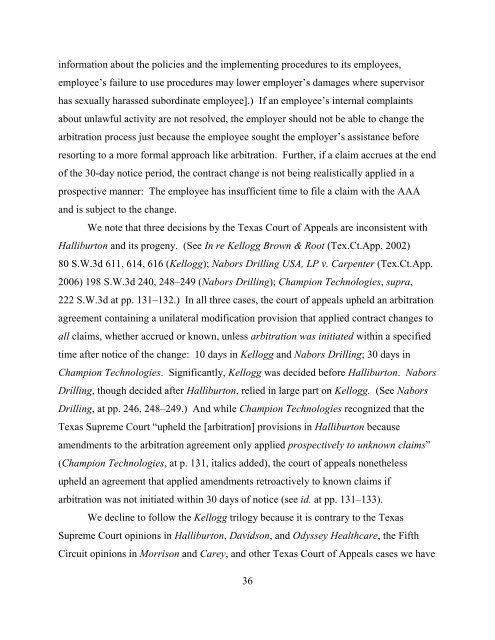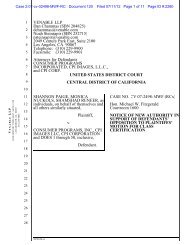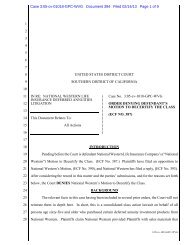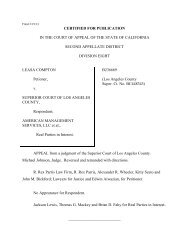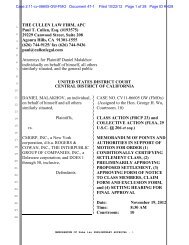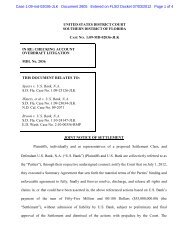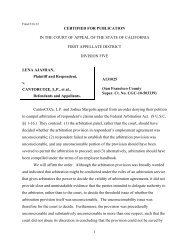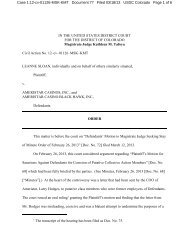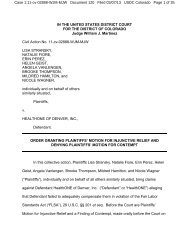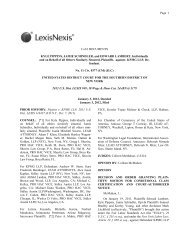here - FindLaw
here - FindLaw
here - FindLaw
Create successful ePaper yourself
Turn your PDF publications into a flip-book with our unique Google optimized e-Paper software.
information about the policies and the implementing procedures to its employees,<br />
employee‘s failure to use procedures may lower employer‘s damages w<strong>here</strong> supervisor<br />
has sexually harassed subordinate employee].) If an employee‘s internal complaints<br />
about unlawful activity are not resolved, the employer should not be able to change the<br />
arbitration process just because the employee sought the employer‘s assistance before<br />
resorting to a more formal approach like arbitration. Further, if a claim accrues at the end<br />
of the 30-day notice period, the contract change is not being realistically applied in a<br />
prospective manner: The employee has insufficient time to file a claim with the AAA<br />
and is subject to the change.<br />
We note that three decisions by the Texas Court of Appeals are inconsistent with<br />
Halliburton and its progeny. (See In re Kellogg Brown & Root (Tex.Ct.App. 2002)<br />
80 S.W.3d 611, 614, 616 (Kellogg); Nabors Drilling USA, LP v. Carpenter (Tex.Ct.App.<br />
2006) 198 S.W.3d 240, 248–249 (Nabors Drilling); Champion Technologies, supra,<br />
222 S.W.3d at pp. 131–132.) In all three cases, the court of appeals upheld an arbitration<br />
agreement containing a unilateral modification provision that applied contract changes to<br />
all claims, whether accrued or known, unless arbitration was initiated within a specified<br />
time after notice of the change: 10 days in Kellogg and Nabors Drilling; 30 days in<br />
Champion Technologies. Significantly, Kellogg was decided before Halliburton. Nabors<br />
Drilling, though decided after Halliburton, relied in large part on Kellogg. (See Nabors<br />
Drilling, at pp. 246, 248–249.) And while Champion Technologies recognized that the<br />
Texas Supreme Court ―upheld the [arbitration] provisions in Halliburton because<br />
amendments to the arbitration agreement only applied prospectively to unknown claims‖<br />
(Champion Technologies, at p. 131, italics added), the court of appeals nonetheless<br />
upheld an agreement that applied amendments retroactively to known claims if<br />
arbitration was not initiated within 30 days of notice (see id. at pp. 131–133).<br />
We decline to follow the Kellogg trilogy because it is contrary to the Texas<br />
Supreme Court opinions in Halliburton, Davidson, and Odyssey Healthcare, the Fifth<br />
Circuit opinions in Morrison and Carey, and other Texas Court of Appeals cases we have<br />
36


